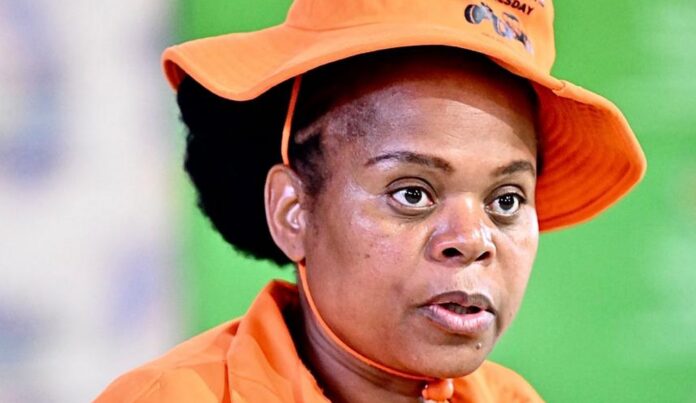Plans to regulate water suppliers throughout the province are being developed, according to Phophi Ramathuba, the premier of Limpopo.
Speaking during a media session held in Polokwane recently, Ramathuba said regulating water suppliers is in line with promoting good health among the communities that depend on these suppliers for daily use.
The regulation will result in municipalities being able to monitor and ensure that water tankers deliver clean, uncontaminated water to avoid poor sanitation, which is linked to the transmission of diseases such as cholera, diarrhoea, dysentery, typhoid, and polio, among others.
“Currently people are just supplying water to our communities across the province, and we really don’t know the sources where they draw this water from,” said Ramathuba.
“We don’t even know whether their tank and the water itself are safe for consumption, which puts people’s lives at risk. It is for this reason we need to regulate the entire water supply system by the suppliers.”
Although so far there have been no reported cases, Ramathuba said: “We are very much aware of speculations that some of our water reticulation system is deliberately damaged by water tankers in order to get tenders to supply water.
Tampering with the system
“We’re urging municipalities to fix broken boreholes and install new ones if they don’t have them.”
She added: “The government is currently planning to take the legal route to deal with those tampering with the reticulated system and those who are doing illegal connections to push their selfish water supply businesses, and we are looking into that.
“Once we establish that there are such people, we will waste no time in dealing with them legally.”
She likened the operation of the water supply business to that of a pharmacy, asserting that such businesses require regulations to function effectively.
“It is critical to know from which source the water comes, and the only way to find out about that is through this regulation.”
In the Lepelle Nkumpi area of the Capricorn district, water tankers charge between R140 and R170 for a 1 250-litre tank.
Suppliers back Ramathuba
The suppliers that Sunday World spoke with on anonymity appeared to support Ramathuba’s decision.
“I have been supplying water for a decade and a half, and the business has been excellent. “But lately, many new suppliers have entered the market because people are buying half trucks and bakkies to start supplying water,” said a 45-year-old father of three who survives by selling water in bulk tanks.
“Regulating the sector will help reduce the number of suppliers. Additionally, it will assist community members in identifying suppliers if contaminated water is delivered, as each delivery will include a document listing the supplier’s name and the vehicle’s registration number.”
Another water trader, a 55-year-old Mokopane mineworker, claimed that two years after losing his job in 2021 as a result of the Covid-19 pandemic, he used his savings to purchase a half truck in 2023.
“I literally bought the half truck for the purpose of supplying water, but these days I can hardly repay the monthly installment due to an escalating number of water suppliers in our area,” he said.
“I fully support Ramathuba’s regulatory decision because it could help us form an organisation to group ourselves by our respective zonal areas, preventing us from operating outside of them, as is currently happening.”



